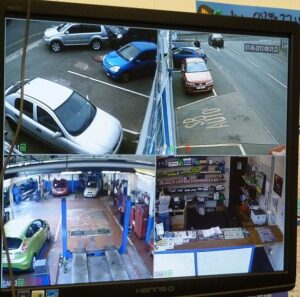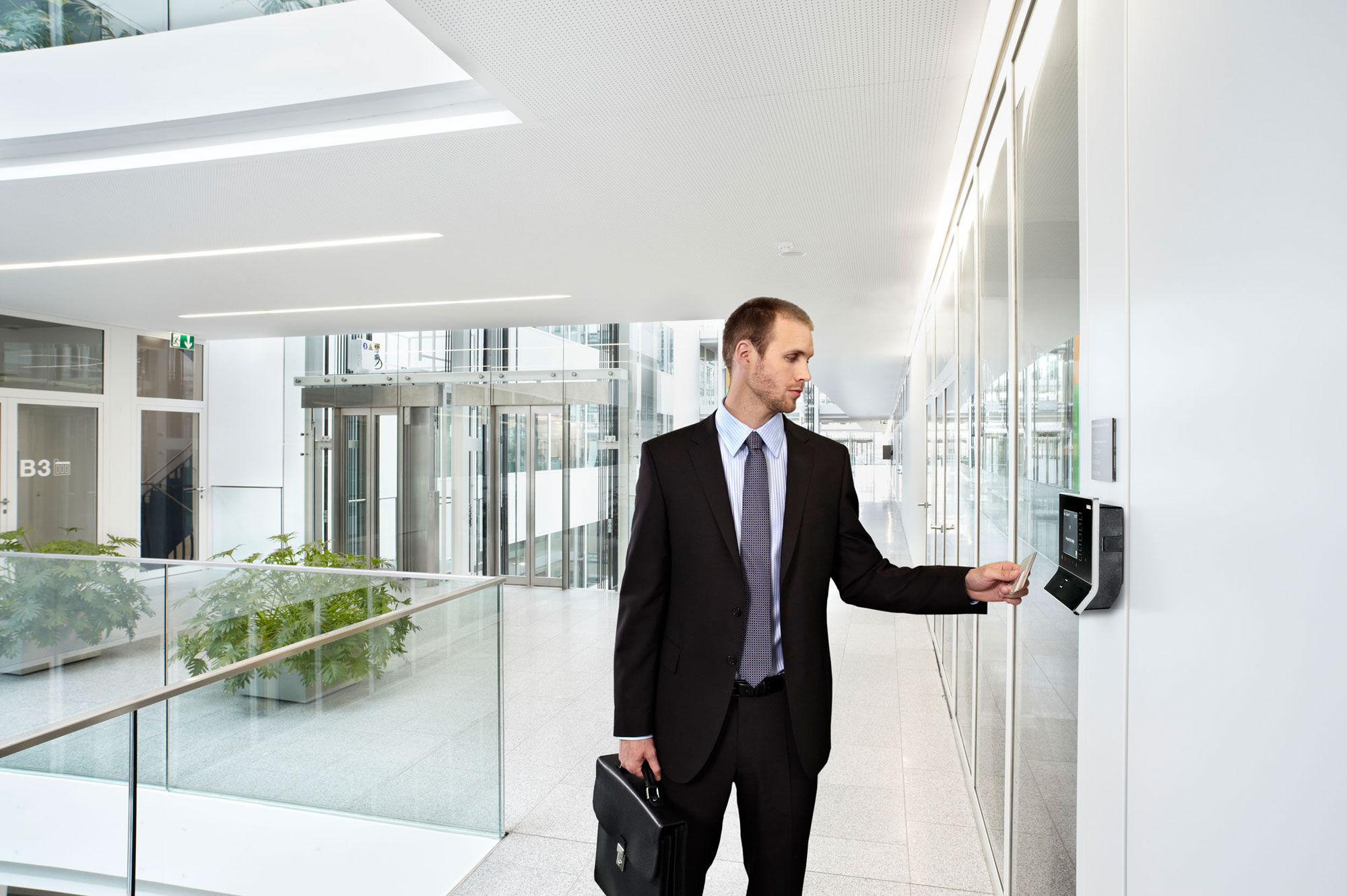
Keeping your employees safe and secure isn’t just about meeting legal and moral responsibilities. It’s an essential aspect of having engaged employees; they need to know their employer takes their welfare seriously and that includes giving employees peace of mind about their security when they’re at work.
Last month we referred to the British Retail Consortium’s
retail crime statistics report and mentioned the fact that there’s been an increase in offences involving abuse or violence against shop staff. In reality it’s likely that figure’s far higher because quite often it’s only the most serious incidents that get reported. And it’s not only an issue in the retail sector of course; news reports often highlight the vulnerability of employees in all types of sectors and industries. While violence is undoubtedly the most worrying, all other forms of crime such as theft or damage to property can be devastating and can affect anyone.
If your employees feel their security isn’t good enough, it’ll start to affect how they feel about their job. It’ll show up in retention, absence and engagement levels.
What can you do to make sure your employees feel as secure as possible when they’re at work?
Use your risk assessments as a starting point to identify all the potential security risks your employees could face. Then consider all the possible ways you can reduce or ideally eliminate those risks.
- Invest in appropriate security equipment
There are plenty of options out there when it comes to security equipment, many of which can be integrated with one another if required.
Commercial CCTV cameras can be an effective choice; knowing their actions will be recorded can be a significant deterrent to criminals.
Access control systems let you manage who can enter certain parts of your premises and that reduces the opportunity for criminals to get into offices or places where employees keep valuables and personal items. Even simply installing some additional security lighting in poorly lit areas can reduce the risk of criminal activity.
- Train employees in handling difficult situations
It’s very hard to predict how you’d react if you were suddenly in a situation where you’re facing someone who’s starting to become aggressive. But some awareness of how to defuse situations can be useful.
Training can help employees learn how to ‘tune in’ to changes in someone else’s behaviour and spot the danger signs. Your own body language and the way you’re speaking (as well as the words themselves) can escalate a situation so employees need to appreciate the importance of staying calm and keeping out of the aggressor’s personal space. Make sure employees understand that if they feel threatened, they should leave if they can (using a ‘pre-planned’ reason like needing to find someone else who can help resolve the aggressor’s issue) and go and raise the alarm.
- Protect lone workers and employees who aren’t working from your premises
Employees might be working alone at your premises so you need to give careful consideration to their security. Alongside installing equipment like
CCTV systems for businesses in the area, consider providing personal safety alarms or using lone worker safety monitoring devices.
Your employees might need to attend meetings away from your premises or they might work remotely so you need to consider any potential risks in those environments and situations too. That could include having itineraries of where employees will be and the names of the people they’re meeting if they are out visiting clients for example. It could include arranging to call them at a set time to check up on them and having predetermined code words in case help is ever needed.
And make sure employees know that if they feel apprehensive about the safety of a situation, there won’t be any repercussions from you if they choose to leave it quickly.
Finally
Always encourage your employees to report any security incidents or near misses, no matter how minor they might seem. Make sure reporting procedures are clear and that people are comfortable raising concerns. Even if an occurrence seems trivial, it can act as a warning to indicate a more serious issue has the potential to take place and gives you the opportunity to reassess the risks and put in extra control measures before it happens.
 Keeping your employees safe and secure isn’t just about meeting legal and moral responsibilities. It’s an essential aspect of having engaged employees; they need to know their employer takes their welfare seriously and that includes giving employees peace of mind about their security when they’re at work.
Last month we referred to the British Retail Consortium’s retail crime statistics report and mentioned the fact that there’s been an increase in offences involving abuse or violence against shop staff. In reality it’s likely that figure’s far higher because quite often it’s only the most serious incidents that get reported. And it’s not only an issue in the retail sector of course; news reports often highlight the vulnerability of employees in all types of sectors and industries. While violence is undoubtedly the most worrying, all other forms of crime such as theft or damage to property can be devastating and can affect anyone.
If your employees feel their security isn’t good enough, it’ll start to affect how they feel about their job. It’ll show up in retention, absence and engagement levels.
What can you do to make sure your employees feel as secure as possible when they’re at work?
Use your risk assessments as a starting point to identify all the potential security risks your employees could face. Then consider all the possible ways you can reduce or ideally eliminate those risks.
Keeping your employees safe and secure isn’t just about meeting legal and moral responsibilities. It’s an essential aspect of having engaged employees; they need to know their employer takes their welfare seriously and that includes giving employees peace of mind about their security when they’re at work.
Last month we referred to the British Retail Consortium’s retail crime statistics report and mentioned the fact that there’s been an increase in offences involving abuse or violence against shop staff. In reality it’s likely that figure’s far higher because quite often it’s only the most serious incidents that get reported. And it’s not only an issue in the retail sector of course; news reports often highlight the vulnerability of employees in all types of sectors and industries. While violence is undoubtedly the most worrying, all other forms of crime such as theft or damage to property can be devastating and can affect anyone.
If your employees feel their security isn’t good enough, it’ll start to affect how they feel about their job. It’ll show up in retention, absence and engagement levels.
What can you do to make sure your employees feel as secure as possible when they’re at work?
Use your risk assessments as a starting point to identify all the potential security risks your employees could face. Then consider all the possible ways you can reduce or ideally eliminate those risks.
